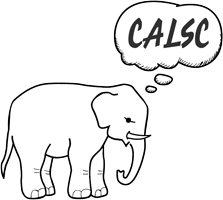Metacognition Not Repetition
The process of using Mastering Memory does NOT involve repetitive practice of exercises that are supervised by a computer. Mastering Memory is supervised by a teacher because one of the main objectives is to encourage selfawareness in the student, exploration of what works and what does not, the guided learning of memory strategies, reflection on progress and goal-setting in real life. A computer is not (yet) able to provide this degree of personalised feedback.
During the session the student will attempt a few exercises, trying out memory strategies which may be thought up by him or her, but which may be suggested by the teacher who has the use of the Mastering Memory Manual for guidance. The process of using Mastering Memory is based on a range of theories, one of which is a metacognitive approach (see Chapter 5 of the Manual). Students should be allowed to try Mastering Memory at different levels of difficulty in order to become aware of their current capability. Mastering Memory does not have a pre-determined set of exercises in which the student must complete one level before he or she can proceed to the next. Allowing students to explore all levels and parameters of
Mastering Memory allows them to become self-aware and often generates motivation to improve.
The parameters within Mastering Memory can be varied in many ways to make the exercises more or less difficult or to concentrate on auditory or visual input or both together. The content of the material itself also lies on a spectrum that ranges between ‘easy’ and ‘difficult’. The hardest level, at one second intervals on auditory input, is a stretching task for most adults and needs them to think about how to do it successfully. Obviously the same sequence can be seen as many times as required, like learning for exams in real life.
Students learn that memory is not a fixed attribute that is either ‘good’ or ‘bad’ for different people but has many subtle aspects to it. They can influence their ability to remember something by using what they have learned about memory, in particular their own memory, and by adopting an orderly, methodical approach based on what they know and their assessment of the difficulty of the material.
Mastering Memory should be used by a student under the supervision of a teacher, and not on his or her own. This is because we believe that a computer can’t monitor and check a student’s understanding, carry out a review of the session, generalise the concepts, help the student to transfer them into real life and generally personalise the session to the student as well as can be done by a teacher. The Teacher’s Manual provides suggestions and information, though the teacher should also adopt an enquiring approach to what works or does not work for the student and bring their own practical knowledge and experience to the session.
We recommend that after a number of sessions of Mastering Memory, possibly covering a period of one term, the student stops the sessions but is encouraged to continue developing their self-awareness of what works and does not work for them and to try different strategies for coping with real life memory and learning tasks. The use of memory strategies is developmental, and it may be appropriate to engage in a further set of sessions using Mastering Memory in the following year.
By using Mastering Memory with the guidance of a committed LSA/TA, teacher or parent, a student who has become more self-aware of how they remember things, and who has explicit knowledge of memory strategies, will be better equipped to apply that self-awareness and knowledge in tackling real life learning situations.

